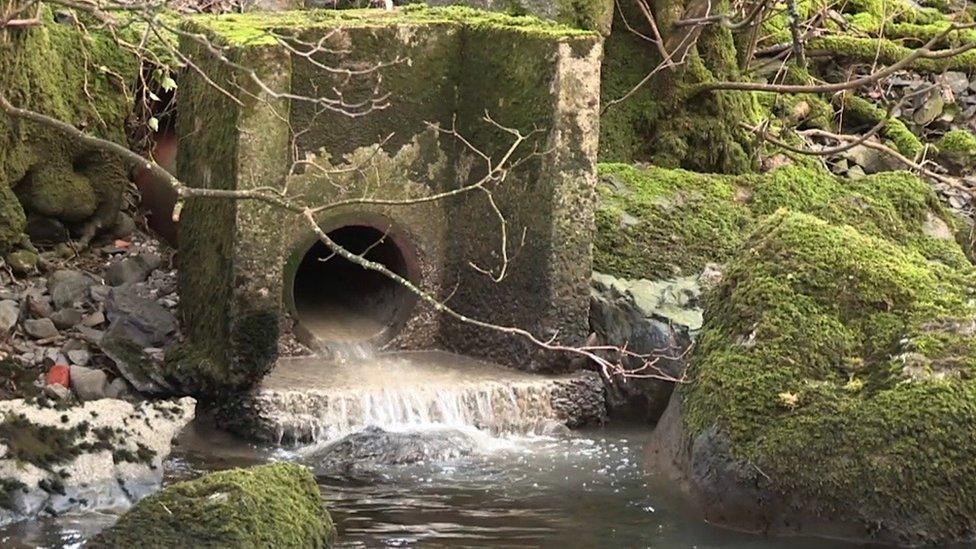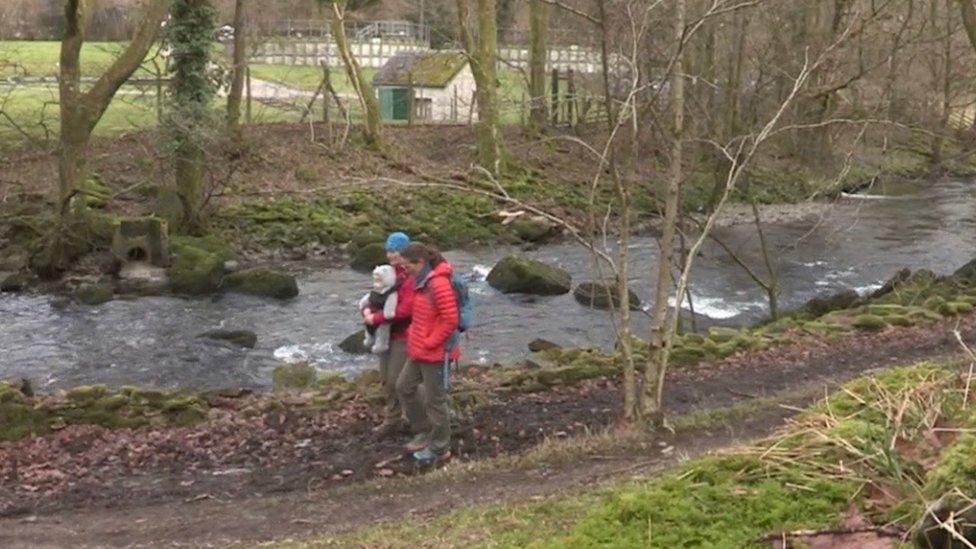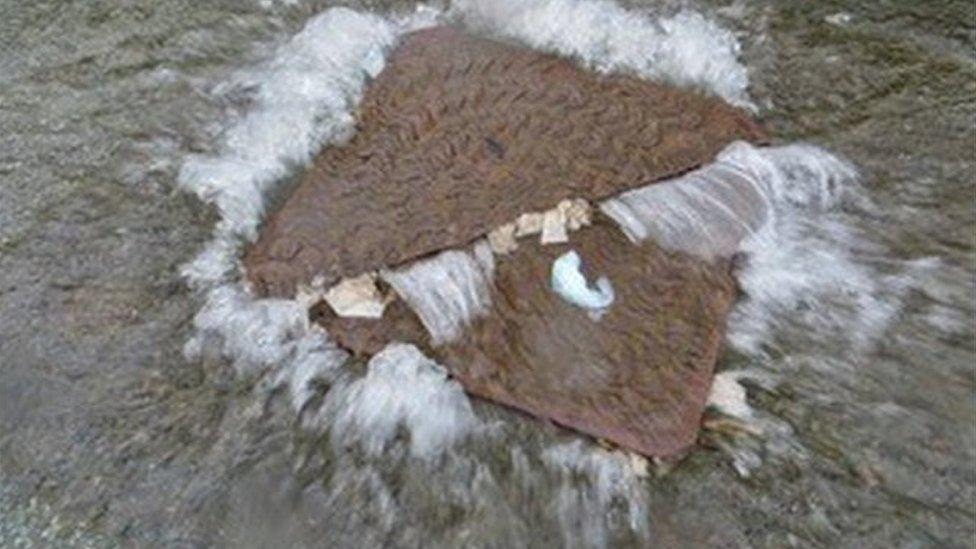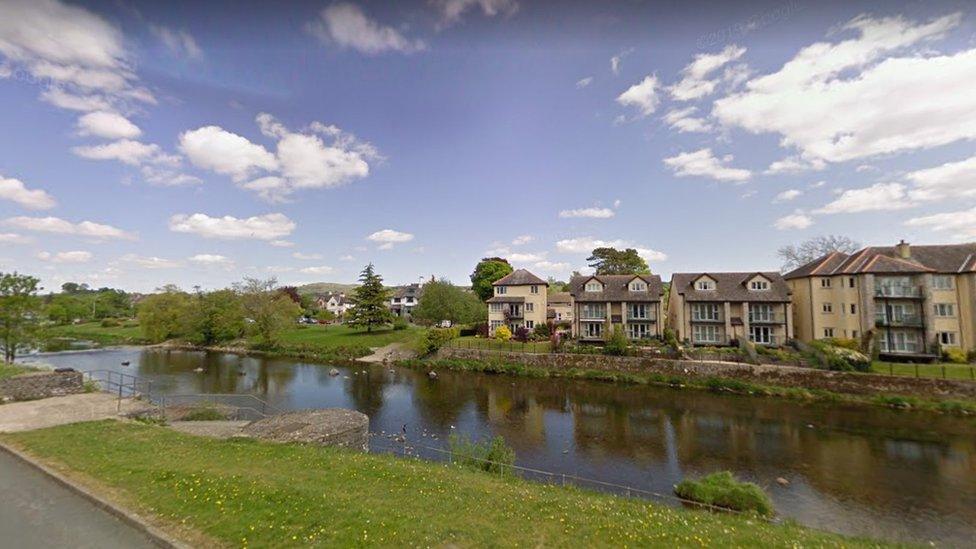'High levels' of faecal bacteria found in River Kent near Kendal
- Published

Campaigners say bacteria levels peaked near the overflow pipe from Staveley treatment works
High levels of faecal bacteria have been found in a Lake District river, campaigners claim.
Samples from the River Kent near Kendal suggested pollution peaked near the sewage treatment works at Staveley, the Clean River Kent Campaign (CRKC) said.
Sheila Adam from the group said the results made her "feel quite anxious".
Water company United Utilities (UU) said the works were "not required to remove bacteria" because the river is not designated for bathing.
But Ms Adams said there was a risk to the health of people who did go into the water.
"Families come and picnic by the river, play in the river and small children go paddling," she said.
UU welcomed the group's research and said it supported its bid for bathing water status.

Campaigners said families often went into the water
The River Kent is both a designated Site of Special Scientific Interest (SSSI) and a Special Area of Conservation (SAC).
CRKC carried out water quality monitoring at six locations on the river between Staveley and Sedgwick from February to September.
It said no organisation had assessed faecal bacterial pollution in the River Kent before.
"The water samples were collected to a rigorous protocol by trained citizen scientists and analysed in an accredited laboratory for E. coli and Enterococcus spp [bacteria found in the faeces of humans]," it said.
"The results show that at all six locations the quality of the river water was assessed as poor [the worst category] due to high levels of both faecal bacterial pathogens."
The Environment Agency has been approached for comment.
University of Cumbria senior lecturer in marine and freshwater conservation Dr Gill Notman said only 4% of SSSI rivers in the Lake District Park were in a favourable condition.
"We need to take urgent action to stop the on-going decline of our precious resources by unacceptable levels of pollution from various sources including wastewater treatment works, agriculture and septic tanks," she said.
Parish councillor Arthur Capstick described the situation as "appalling".
He said: "It makes us angry and frustrated that here we are in 2022 and this is still happening.
"There doesn't seem to be any answer coming from the people responsible."

Follow BBC North East & Cumbria on Twitter, external, Facebook, external and Instagram, external. Send your story ideas to northeastandcumbria@bbc.co.uk, external.
Related topics
- Published20 April 2022

- Published4 August 2021

- Published4 August 2021
